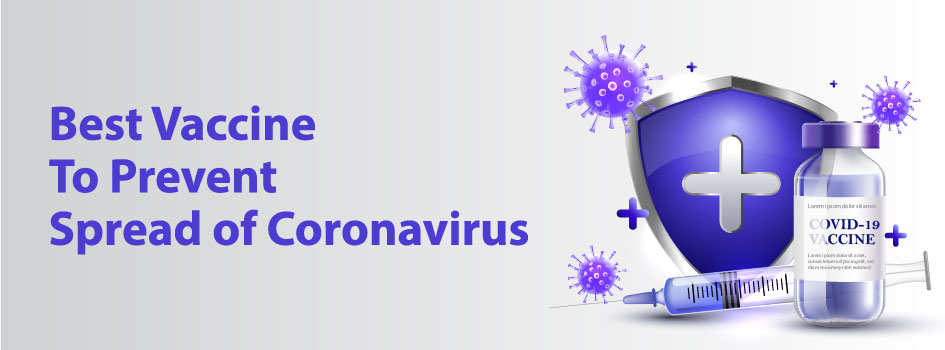India has ramped up COVID-19 vaccine production after a deadly second wave of infections that are now abating. The country has allowed the use of four coronavirus vaccines to people who are 18 years old or more than that. These vaccines are Covaxin, Covishield, Sputnik V and Moderna to combat the deadly virus. Covishield (AstraZeneca’s vaccine manufactured by Serum Institute of India) and Covaxin (manufactured by Bharat Biotech Limited) are the two vaccines that were conferred emergency use authorization by CDSCO (the Central Drugs Standard Control Organization) in India. Sputnik – V has been granted Emergency Use Authorization (EUA) in the month of April 2021.
All four vaccines available for use in the country have cracked the WHO standard of approval. They have been found to possess tolerable efficacy rates and are potent to lessen vulnerabilities. Still, some vaccines may be more reliable than others and they can offer benefits too. With different vaccines available in the country, it has given rise to questions of which one of best for coronavirus. Currently, there is no way to choose which vaccine you will be getting. If a person wants to take COVID-19, then he or she needs to register on official portals, such as the CoWIN website or the ArogyaSetu app to book their vaccination slot.
To make out which is the best vaccine that has the potential to prevent coronavirus disease, understanding the efficacy rate of these vaccines is important.
What is Efficacy Rate?
The efficacy rate of the COVID-19 vaccines determines their workability under clinical settings. It displays how powerful the vaccine could be after approval. The efficacy rate is calculated by comparing the number of cases of the disease in the vaccinated group versus the placebo group. Note that efficacy of 90% does not mean that 10% of the vaccinated people will fall ill. Vaccine effectiveness is an evaluation of how well vaccines would be working in the real world.
When we talk about Covishield, Covaxin, Sputnik V and Modernavaccines that are being used in the country, they have got the WHO nod for approval. Specifically, WHO only gives a nod to a vaccine if it is at least 50% effective against transmission.
Based on the clinical trials and real-time usage, experts claim that all the vaccines while they are effective in fighting the SARS-COV-2 strain come with different efficacy rates. A vaccine with a higher efficacy rate means it is more favourable for usage. At present, we have four COVID-19 vaccines with four different efficacy rates.
Have a look.
Workability against the Delta Variant
The Delta variant of coronavirus has been the main reason for the second wave in India. So, when we are discussing the efficacy and effectiveness of COVID-19 vaccines, it becomes are all more important to review how effective a vaccine would be against the mutant strains of SARS-COV-2, Delta variant, which are spreading fast and have been characterized as Variants of Concern (VoCs). Note that there was a rise in cases amongst those who got vaccinated earlier. It means that the vaccines we have for coronavirus may not be as effective as proven.
While these vaccines are directed to different levels of evaluation and many even need to be upgraded, some of the vaccines have proven to be less effective and efficacious against the Delta variant. It was reported that the efficacy rate of Covishield dropped to 65% with the Delta variant. Recent researches have confirmed a comparable drop in the workability of Covaxin, which is 61%. With Sputnik V, too, there is a decline in the efficacy rate, but as per experts, the fall could be insignificant. In case of Moderna, studies have demonstrated that the vaccine is well able to neutralize antibodies against such VoCs. It offers a good level of protection as well, at a lower efficacy rate. Therefore, the ability of the mRNA vaccine to combat Delta and other variants of COVID-19 may offer it an edge.
Endnotes
COVID-19 vaccines available in India are the only means to fight off the coronavirus pandemic right now. Since there is no other way out to choose the type of vaccine one will get, it is good to not dwell on which vaccine is the best and most suitable for you. All the vaccines available have been tested to offer good protective odds of decreasing symptomatic infections, hospitalization and mortality against the Delta variant. Among the vaccines that are being used in India currently, they have almost similar efficacy rates and normal side effects. Hence, it is good to book your slot and get vaccinated as soon as possible. This will boost your immune and stop the coronavirus spread.
Disclaimer: This article piece has been written in the general public interest, and intended for general information purposes only. You are advised not to trust the contents of the article as conclusive in nature and you are free to research further or consult a health expert in this regard.
